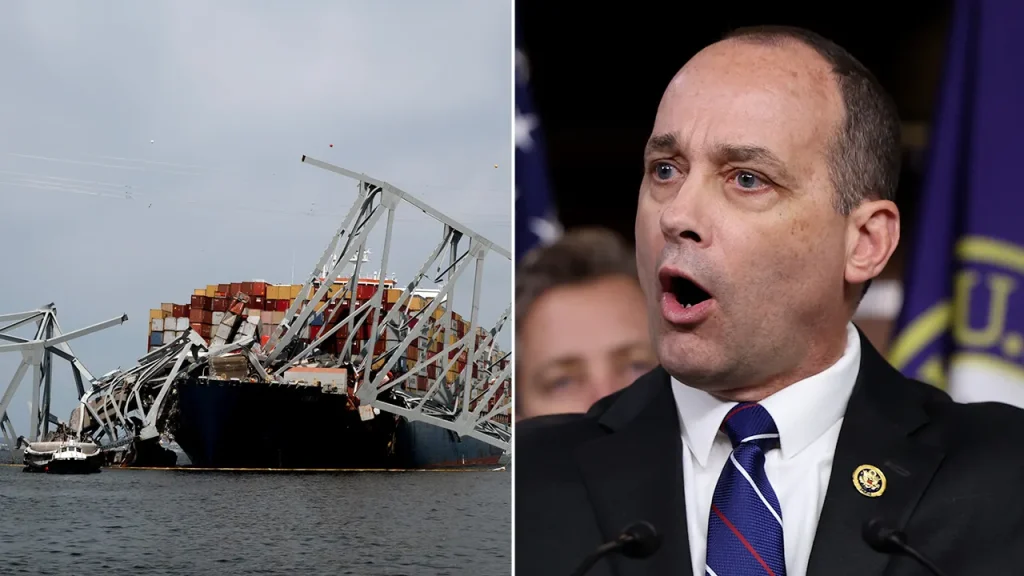The House Freedom Caucus is demanding that any federal funds allocated to rebuild Baltimore’s Francis Scott Key Bridge be offset by cuts elsewhere and that those dollars be narrowly aimed at just structural repairs. The ultra-conservative Republican group is staking out an official position as federal officials work with the Maryland government to assess the damage done by both the destroyed bridge and the impact on activity at the Port of Baltimore. Before greenlighting funds for the restoration, however, the Freedom Caucus signaled for House GOP leaders to force the Biden administration to roll back its pause on new export permits for liquefied natural gas (LNG). The group emphasized the need to first seek maximum liability from foreign shipping companies and have the Port of Baltimore use already available federal funds before appropriating taxpayer money for repairs.
The House Freedom Caucus insists that any funding for the Baltimore bridge must be fully offset and that regulations causing delays and additional costs be waived. The group, led by Rep. Andy Harris, is focused on ensuring that the funding is limited to physical structure repairs with a federal nexus and that it does not include any unrelated projects. They also stress the importance of adhering to the ‘single subject’ rule and insist that the Biden administration lift its pause on approvals of liquefied natural gas export terminals before Congress considers funding for the bridge reconstruction. The group’s opposition in the early stages may impact the final funding package, but bipartisan support is expected if the funding is targeted solely toward the bridge and its operations.
The Francis Scott Key Bridge collapsed after a Singapore-linked container ship lost power and collided with the structure, resulting in the deaths of six construction workers. House Rules Committee Chairman Tom Cole anticipates that a funding package will come together in a matter of weeks and may need to address not only the reconstruction of the bridge but also potential damages relating to the interruption of traffic at the port. The complexity of the situation may require funds to cover disruptions in traffic, potential job losses, and the operational challenges faced by the port in the coming weeks. Reports have estimated that the cost of rebuilding the bridge could reach up to $2 billion, prompting discussions among House Republicans about the federal government’s pledge to cover the entire reconstruction cost.
While House Republicans have been divided over President Biden’s commitment to fund the bridge’s reconstruction, a funding package is expected to garner wide bipartisan support in the House and Senate, especially if it focuses strictly on the bridge and its operations. The funding must be fully offset and should target only structural repairs with a federal nexus, according to the House Freedom Caucus. The group’s emphasis on liability from foreign shipping companies and the use of available federal funds before appropriating taxpayer money reflects their conservative fiscal approach. As discussions continue, it remains to be seen if the demands of the Freedom Caucus will significantly impact the final funding package or if bipartisan support will prevail in addressing the critical infrastructure needs in Baltimore.


